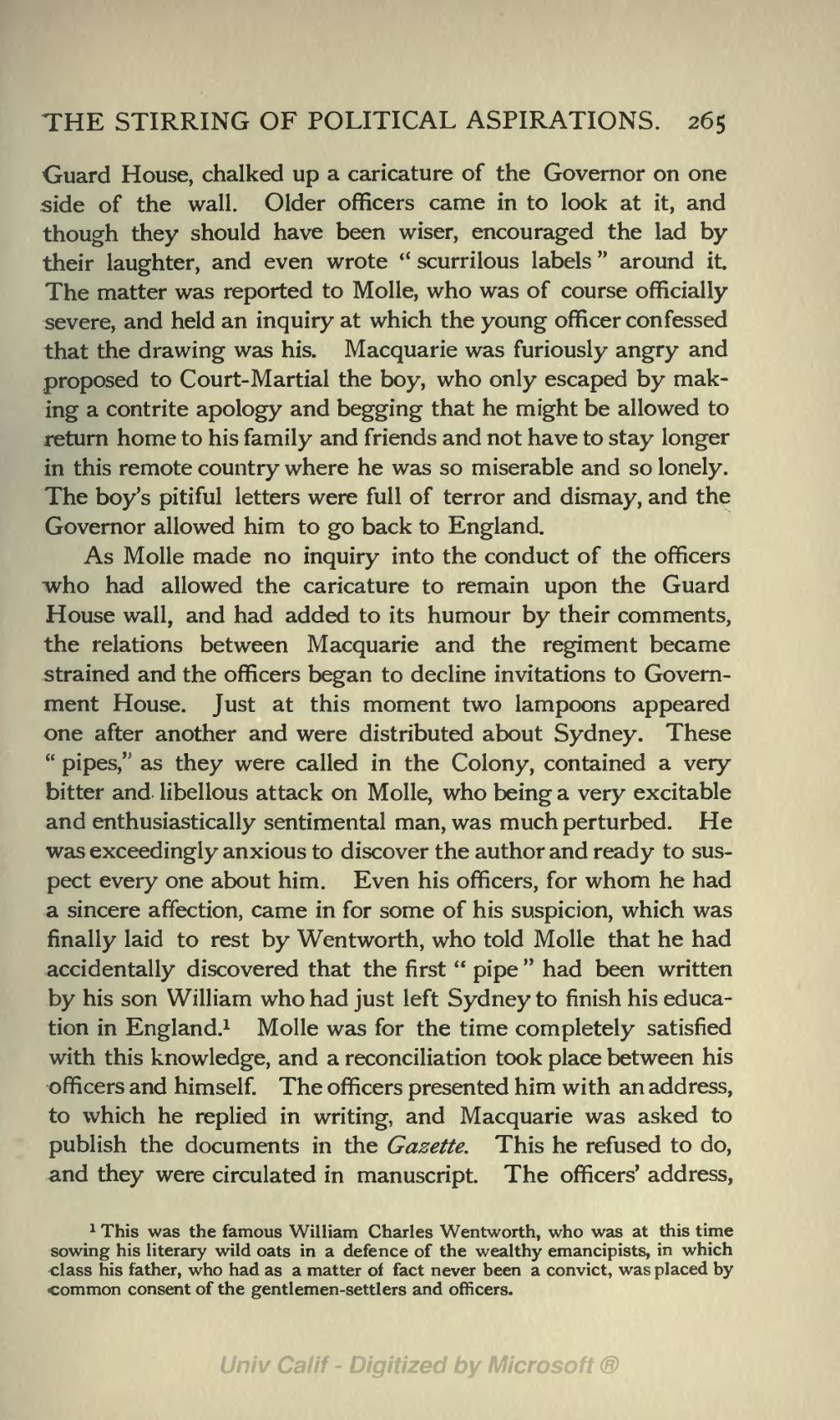Guard House, chalked up a caricature of the Governor on one side of the wall. Older officers came in to look at it, and though they should have been wiser, encouraged the lad by their laughter, and even wrote "scurrilous labels" around it. The matter was reported to Molle, who was of course officially severe, and held an inquiry at which the young officer confessed that the drawing was his. Macquarie was furiously angry and proposed to Court-Martial the boy, who only escaped by making a contrite apology and begging that he might be allowed to return home to his family and friends and not have to stay longer in this remote country where he was so miserable and so lonely. The boy's pitiful letters were full of terror and dismay, and the Governor allowed him to go back to England.
As Molle made no inquiry into the conduct of the officers who had allowed the caricature to remain upon the Guard House wall, and had added to its humour by their comments, the relations between Macquarie and the regiment became strained and the officers began to decline invitations to Government House. Just at this moment two lampoons appeared one after another and were distributed about Sydney. These "pipes," as they were called in the Colony, contained a very bitter and libellous attack on Molle, who being a very excitable and enthusiastically sentimental man, was much perturbed. He was exceedingly anxious to discover the author and ready to suspect every one about him. Even his officers, for whom he had a sincere affection, came in for some of his suspicion, which was finally laid to rest by Wentworth, who told Molle that he had accidentally discovered that the first "pipe" had been written by his son William who had just left Sydney to finish his education in England.[1] Molle was for the time completely satisfied with this knowledge, and a reconciliation took place between his officers and himself. The officers presented him with an address, to which he replied in writing, and Macquarie was asked to publish the documents in the Gazette. This he refused to do, and they were circulated in manuscript. The officers' address,
- ↑ This was the famous William Charles Wentworth, who was at this time sowing his literary wild oats in a defence of the wealthy emancipists, in which class his father, who had as a matter of fact never been a convict, was placed by common consent of the gentlemen-settlers and officers.
